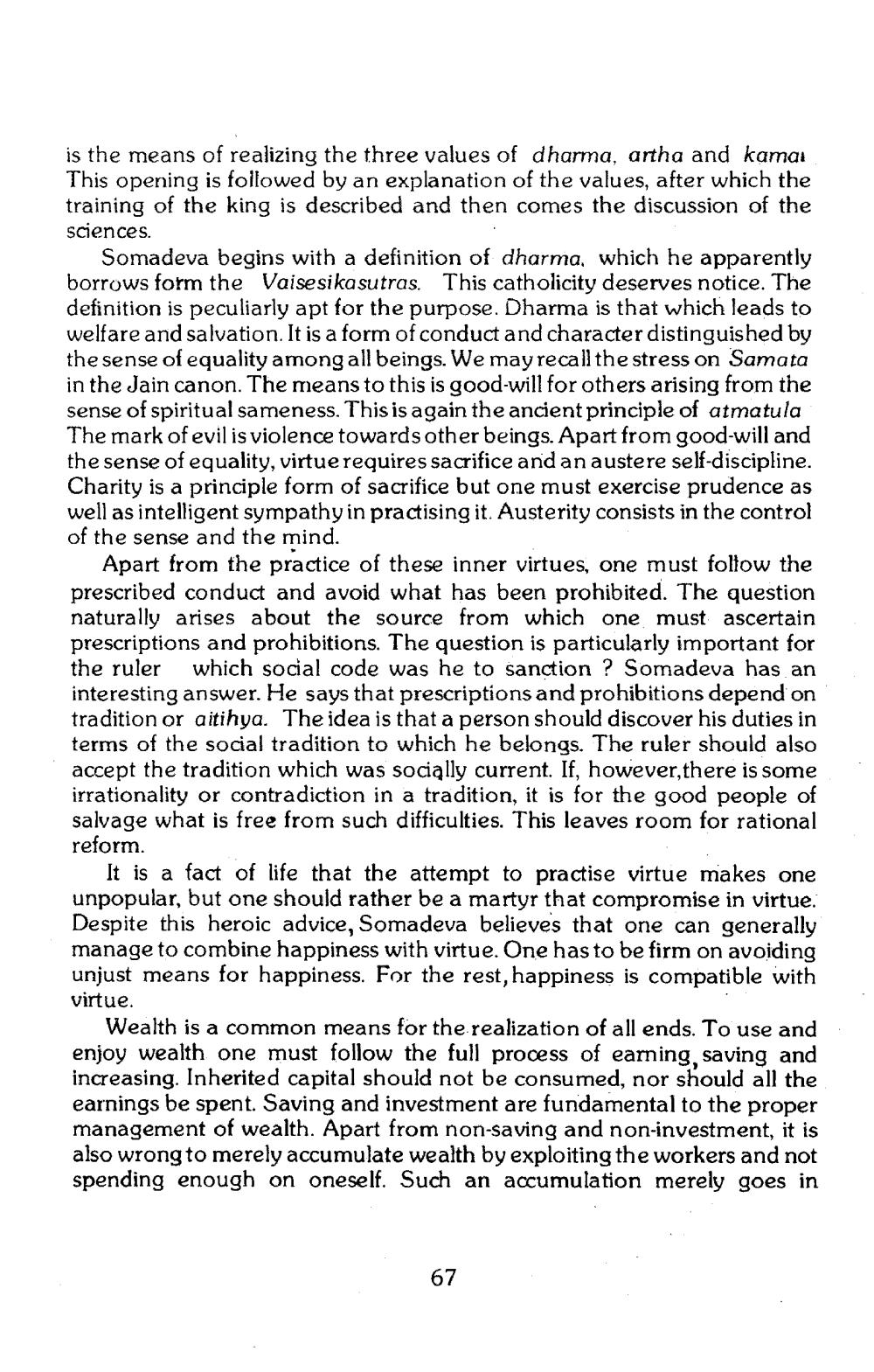________________
is the means of realizing the three values of dharma, artha and kamar This opening is followed by an explanation of the values, after which the training of the king is described and then comes the discussion of the sciences.
Somadeva begins with a definition of dharma, which he apparently borrows form the Vaisesi kasutras. This catholicity deserves notice. The definition is peculiarly apt for the purpose. Dharma is that which leads to welfare and salvation. It is a form of conduct and character distinguished by the sense of equality among all beings. We may recall the stress on Samata in the Jain canon. The means to this is good-will for others arising from the sense of spiritual sameness. This is again the ancient principle of atmatula The mark of evil is violence towards other beings. Apart from good-will and the sense of equality, virtue requires sacrifice and an austere self-discipline. Charity is a principle form of sacrifice but one must exercise prudence as well as intelligent sympathy in practising it. Austerity consists in the control of the sense and the mind.
Apart from the practice of these inner virtues, one must follow the prescribed conduct and avoid what has been prohibited. The question naturally arises about the source from which one must ascertain prescriptions and prohibitions. The question is particularly important for the ruler which social code was he to sanction ? Somadeva has an
ganswer. He says that prescriptions and prohibitions depend on tradition or aitihya. The idea is that a person should discover his duties in terms of the social tradition to which he belongs. The ruler should also accept the tradition which was socially current. If, however, there is some irrationality or contradiction in a tradition, it is for the good people of salvage what is free from such difficulties. This leaves room for rational reform.
It is a fact of life that the attempt to practise virtue makes one unpopular, but one should rather be a martyr that compromise in virtue. Despite this heroic advice, Somadeva believes that one can generally manage to combine happiness with virtue. One has to be firm on avoiding unjust means for happiness. For the rest, happiness is compatible with virtue.
Wealth is a common means for the realization of all ends. To use and enjoy wealth one must follow the full process of earning, saving and increasing. Inherited capital should not be consumed, nor should all the earnings be spent. Saving and investment are fundamental to the proper management of wealth. Apart from non-saving and non-investment, it is also wrong to merely accumulate wealth by exploiting the workers and not
ling enough on oneself. Such an accumulation merely goes in
67




